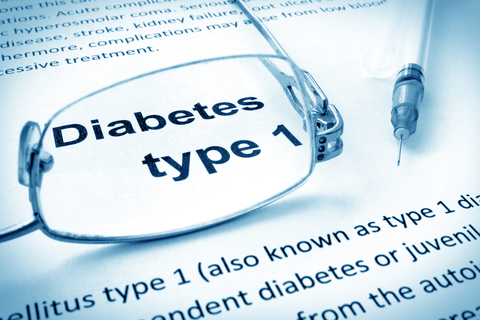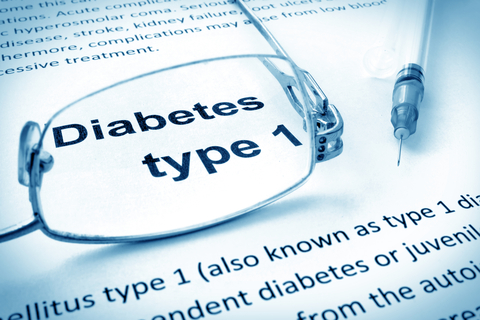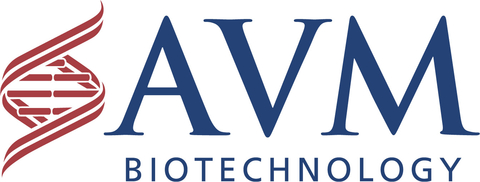SEATTLE--(BUSINESS WIRE)--AVM Biotechnology, LLC, a clinical stage company advancing AVM0703 in the treatment of Non-Hodgkin’s Lymphoma (NHL)/Leukemia, today announced that it has been awarded a Phase II Small Business Innovation Research (SBIR) grant. This $1.6 million award from the National Institute of Diabetes and Digestive Kidney Disease (NIDDK) will allow the company to pursue additional research in the use of AVM0703 as a monotherapy and combination therapy to reverse recent onset and established Type 1 Diabetes (T1D). T1D is an autoimmune disease that destroys beta cells, the insulin-making cells in the pancreas. This award provides an endorsement of AVM0703’s potential in two distinct and crucial therapeutic areas, diabetes and cancer.
The company has partnered with Dr. Clive Wasserfall, University of Florida, College of Medicine for this grant. Dr. Wasserfall’s research activities are focused on the immune pathogenesis of T1D. He has paved the way for both prevention and reversal efforts in T1D. Dr. Wasserfall is a respected leader in diabetes research having authored more than 170 publications and several book chapters on diabetes and immunology. He serves as a reviewer for many journals including Diabetes, Pediatric Diabetes, and the Journal of Clinical Endocrinology and Metabolism.
“My laboratory is very excited to collaborate with Dr. Deisher and AVM in testing AVM0703 in preclinical type 1 diabetes. This novel compound has great potential to safely interdict autoimmune disease, and this is greatly needed in the type 1 diabetes space,” stated Dr. Wasserfall.
AVM0703 is a small molecule which triggers the production and release of endogenous bispecific gamma delta TCR+ invariant TCR+ Natural Killer T-like cells (AVM-NKT). These naturally occurring amplified immune cells have unique properties and appear rapidly in the blood following a single dose of AVM0703, which has shown efficacy in delaying T1D in murine models.
Type 1 diabetes mellitus affects approximately 20 million individuals worldwide, including 1.25 million Americans. T1D is associated with an annual economic burden in the US of $14.4 billion. Therapeutic insulin and other treatments do not cure T1D, but simply control blood glucose levels. Even in combination, current immunotherapies can fail to guarantee restoration of insulin independence. One such therapy, autologous hematopoietic stem cell transplantation (HSCT) exposes patients to the risk of possible side effects, including short-term risk of infection, acute organ dysfunction, and long-term risks of malignancies and secondary autoimmune disease. AVM0703 may provide a safer and more sustainable treatment option.
Data suggest that a single dose of AVM0703 removes autoimmune pathophysiologic substrates present in T1D patients. The short half-life precludes prolonged immune suppression, and the non-myeloablative lymphodepletion of AVM0703 is receptor-mediated and an “immunologic reset” that can be repeated in cases of relapse. Importantly, AVM0703 has been well-tolerated in clinical studies with generally mild to moderate and self-limiting side effects.
This NIDDK grant follows an earlier 2019 Phase I grant for targeted lympho-ablation as an alternative to cure T1D. Results of that preclinical research program showed that AVM0703 significantly delayed the onset of T1D by 20-31 weeks in 55% of treated mice and prevented diabetes onset in the other 45% of mice. This Phase II funded project has been designed to further preclinical research, to expedite data acquisition to support an IND and pave the way to clinical trials. The grant will be awarded over a two year period with the second year payment subject to funds availability and satisfactory progress of the study.
A preclinical dose-finding and mechanism of action (MOA) study in three scenarios including pre-diabetic, new-onset, and established diabetes is the first aim of the program. Those results will be used to determine the targeted dose to be used in a pivotal efficacy study for reversal of new-onset and established diabetes. It is anticipated that for patients not showing remission, AVM0703 may reinforce other immunotherapies allowing a wider range of patients to achieve insulin independence.
About AVM Biotechnology
AVM Biotechnology is a clinical stage company developing AVM0703 for cancer, infectious disease syndromes, and autoimmunity diseases as a commercial product. The basis for these programs is the endogenous mobilization and activation of AVM-NKT cells by a glucocorticoid-receptor-independent mechanism with the administration of AVM0703. While the full potential of these cells continues to be explored by AVM scientists, it is clear they have the potential to play a significant role in several diseases providing the prospect of a high value pipeline.
For information, contact Jena Dalpez jdalpez@avmbiotech.com, +1 206 906-9922 or visit us at AVM Biotechnology.
This contains certain statements that constitute “forward-looking statements” within the meaning of the Private Securities Litigation Reform Act of 1995. These statements do not relate strictly to historical or current facts and they may be accompanied by words such as “could,” “would,” “may,” “potentially,” “suggest,” “believes,” “expects,” “should,” and similar words or expressions. These forward-looking statements reflect our current views as of the date this is published, and are subject to risks, uncertainties, assumptions, changes in circumstances, and other factors; drug development and commercialization are highly risky and early clinical results in animals or humans may not reflect the full results from later stage or larger scale clinical trials. These forward-looking statements are subject to risks and uncertainties that could cause our actual results, performance, and expectations to differ materially from those expressed or implied by these statements, including statements about: future and ongoing drug development and timing; the applications of drugs to specific diseases; the potential for ongoing preclinical or clinical trial results; FDA or other regulatory findings and approvals; potential market opportunities; and the occurrence of future events or circumstances. There are risks and uncertainties involving and not limited to our ability to progress in our research and development efforts, complete clinical testing, achieve our expected results, commercialize our products, avoid infringement of patents, trademarks and other proprietary rights of third parties, protect products from competition, navigate the political environment, maintain sufficient capital and funding, avoid problems with our manufacturing processes, maintain our operations, and obtain regulatory approval to sell and market the drugs in the United States and elsewhere. The reader should not place any undue reliance on such forward-looking statements. We have no obligation to release publicly the results of any revisions to any of our forward-looking statements to reflect events or circumstances after the date these statements are made or to reflect the occurrence of unanticipated events, except as may be required by law.




